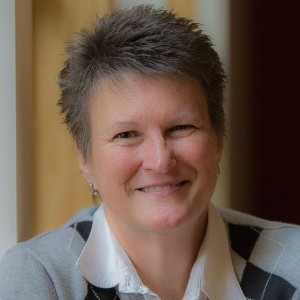 In Albert Mohler’s world, a certain moral order is clear, and in this world people who are single by choice, queer or deliberately childfree are indecent, not fully human and certainly not in right relationship with God.
In Albert Mohler’s world, a certain moral order is clear, and in this world people who are single by choice, queer or deliberately childfree are indecent, not fully human and certainly not in right relationship with God.
The president of Southern Baptist Theological Seminary recently tweeted “that to be human is to be a parent.” That’s been a consistent theme for the conservative Southern Baptist leader. In 2005 Mohler said that choosing to be childfree is a “disturbing commitment to perpetual adolescence” that is about avoiding responsibility. Marriage and childbearing, he claims, are “moral” requirements mandated by God. Deliberate childlessness is an act of rebellion against God.
Mohler’s moral outrage stems from reports across the years that birth rates are declining and young people are attaching less importance to having children. For Mohler, this points to moral decline and secularism. He calls for the church to affirm that the “biblical formula calls for adulthood to mean marriage and marriage to mean children.”
I’m not sure what that means for Jesus, but Mohler’s moral universe is clear: Complementarian heterosexual marriage and children are requirements for faithful Christian adulthood.
“What we’re left with is men like Mohler in power – in the church, in the family and in society.”
But from the perspective of those whom Mohler deems immoral, his mandate is a moral order that creates, enforces and serves cisgender, white heteropatriarchy.
While fertility rates have fallen, the decline is uneven across races and nations. In the United States, white non-Hispanic women have lower fertility rates than Hispanic or black women. Across the world, fertility rates are highest in poorer nations, predominantly in Africa and Latin America. The Pew Research Center has projected that the number of babies born to Muslims will outnumber those born to Christians by 2035.
In 2008, journalist Kathryn Joyce wrote about white evangelical concerns over declining fertility rates. She noted the growing influence of American “profamily” evangelicals on right wing Europeans. Both groups, she explained, were concerned about a “demographic winter” that will destroy Western civilization through the failure of white Europeans to produce enough babies.
Mohler also shared this concern: “Many European nations display similar patterns of delayed adulthood, with ominous economic, political, and social implications.”
For Joyce, this euphemistic fear of “the baby bust” is simply “old-fashioned race panic.”
Also, as Joyce recognizes, the problem of evangelical concern over falling fertility rates is even more complicated than race panic. Their demands that all adult Christians participate in heterosexual marriage with children have differing impacts on women and men.
For example, we know that having children increases the likelihood of women’s poverty. It can have an adverse impact on women’s careers, and this impact differs by race. Worldwide, more than 800 women die each day from preventable pregnancy-related complications, and most of these deaths are in the developing world.
Of course, in Mohler’s moral universe, women are typically stay-at-home moms without career aspirations outside the home, marriages never end, husbands fulfill their “God-given” responsibilities and wives graciously submit to their husbands’ authority. In fact, Mohler’s ideal family makes women all the less in control of their own lives and all the more dependent on men for survival. The realities of poverty, domestic violence, lack of access to healthcare, and lack of education do not intrude in this evangelical complementarian world.
“The truth is young people are leaving the church precisely because of their disillusionment with its treatment of marginalized and vulnerable people.”
So while Mohler calls for more children, he notably does not make a parallel call for support services that might address women’s social and economic vulnerability as mothers.
Furthermore, controlling reproduction is one mechanism for controlling women in general, and women’s sexuality in particular. Mohler believes in women’s submission in the family and their exclusion from pastoral leadership in the church. Demanding women marry (men) and have children is a powerful way to enforce patriarchal control of women’s bodies.
He even goes so far as to argue that if marriage only means sex but not children, then spouses “defraud the creator of His joy and pleasure in seeing the saints raising His children.”
Of course, LGBTQ people do not factor into Mohler’s equation. For him, marriage is between one man and one woman. In this cisgender, white, heteropatriarchal family model, LGBTQ people disappear as an abomination and an aberration – even the ones who want to get married and have children.
What we’re left with is men like Mohler in power – in the church, in the family and in society. In Mohler’s moral universe, cis, straight, white men rule.
Mohler says young people have forsaken the importance of marriage and children and left the church because the country has lost its morality. However, Mohler’s morality is one with repentance for slavery but without reparations, subordination of women and gene therapy to “cure” homosexuality in utero. The truth is young people are leaving the church precisely because of their disillusionment with its treatment of marginalized and vulnerable people. They’re not leaving because the nation has lost its morality but because the church has lost its love, inclusion, safety and welcome. Many parts of the evangelical church in particular have become havens for misogyny, homophobia, transphobia and white nationalism.
Labelling deliberately childfree people as less than human is just one more example of the failure of right-wing Christianity to reflect God’s love and to honor God’s image in all people. Mohler’s moral universe is not moral; it is a pseudo-religious façade for conservative, cis, straight, white male power over women, people of color and LGBTQ people. It is, to use Mohler’s word, indecent.
